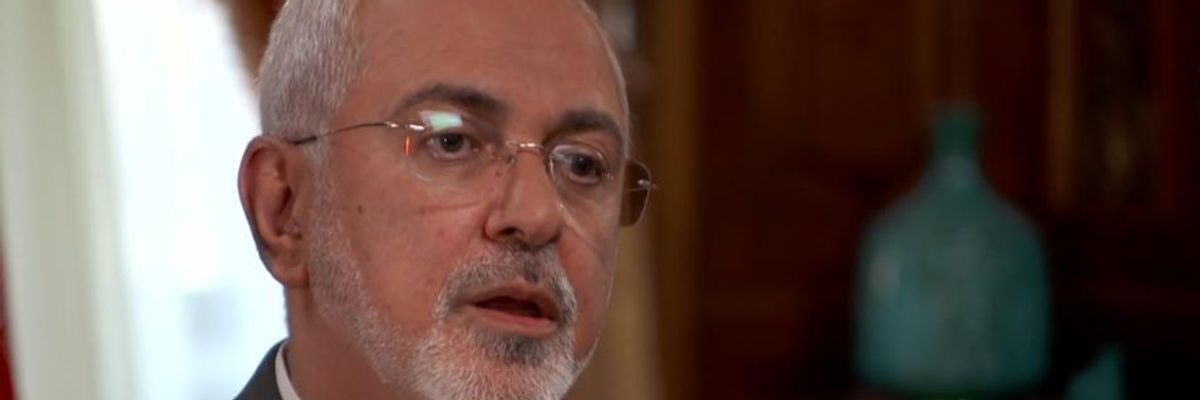As President Trump threatens to rip up the nuclear agreement between the U.S., Iran and other major powers, the Iranian Foreign Minister Mohammad Javar Zarif said on Sunday that the United States has "never abandoned the idea of regime change" for his country and the only major difference now is that the Trump administration has just become "more explicit about stating it."
"Well, I think the United States has never abandoned the idea of regime change in Iran. Now they are more explicit about stating it." --Iran Foreign Minister Mohammad Javar Zarif
Asked specifically by Margaret Brennan, correspondent for CBS's "Face The Nation," about the rhetoric by Trump's new national security advisor John Bolton--known as an ultra-hawk on Middle East policy who has openly advocated attacking Iran--and Mike Pompeo, currently the CIA director but recently nominated to become secretary of state, Zarif suggested Trump's so-called "war cabinet" is in some ways just more honest about its hostility towards Iran.
"Well, I think the United States has never abandoned the idea of regime change in Iran. Now they are more explicit about stating it," Zarif stated.
With a clear reference to Saudi Arabia, Bahrain, and other Gulf monarchies, Zarif continued by saying the U.S. is "used to dictators in our region who rely on them. As President Trump said, [those regimes] cannot live without U.S. support for two weeks. That's the type of regime that they're used to and that is why they so readily talk about regime change. They have not been able to impact the decision of the Iranian people over the last 40 years even at times when the Iranian revolution was very new."
As CBS has yet put into segments the most interesting parts of the interview, watch the whole entire thing below. The good news, however, is that it is all very informative and revealing:
Zarif then reminder viewers that it was the U.S. who backed Iraq's Saddam Hussein in the Iran-Iraq war in the 1980's, even supplying ingredients and condoning the use of chemical weapons by the Iraqis. "People should not forget history," he said.
Zarif also said that if Trump does pull out of the nuclear pact, that it is ready to return to working on its nuclear development program at a ramped up pace.
"Just read the first three lines [of nuclear deal] and it's there, there is no sunset to the fact that Iran will never seek nuclear weapons."
But, more strikingly, Zarif makes clear that when he says "nuclear activity," he does not mean a nuclear weapons program--something that before the international agreement negotiated under President Barack Obama and his secretary of state John Kerry the Iranians had insisted they were not pursuing.
When Brennan asks Zarif about the stated worries by U.S. lawmakers and others about a purported "sunset clause" in the deal, Zarif explains that this has nothing to do with nuclear weapons development.
"Three lines down the preface to the agreement is Iran commits itself never to develop a nuclear weapon," he explains. "I mean you don't--you don't need even to read the entire 150 pages of the deal--just read the first three lines and it's there, there is no sunset to the fact that Iran will never seek nuclear weapons."
Watch:
Elsewhere in the interview Zarif condemned the use of chemical weapons wherever they are used--without regard for identity of victims or the perpetrator--but said that an international investigation should take place in Syria regarding an alleged attack in the city of Douma and that unsanctioned retaliation was a violation of international law. He also condemned the ongoing U.S.-backed, Saudi-led assault on Yemen. And ultimately called for "respect" from the U.S. administration if it hopes for a better bilateral relationship to arrive.
"You do not engage in negotiations by exercising disrespect for a country, for its people," Zarif said. "For its government by openly making claims including this illusion about regime change. Then you do not leave much room for a genuine dialogue."
